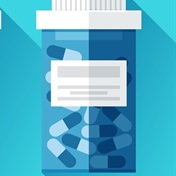As the public increasingly labours under the effects of the extended economic downturn, fresh concerns are being raised about the effect that non-compliance with medical treatments will have on the health of individuals and the ultimate cost to the public purse.
Although treatment non-compliance has always posed challenges, the problem is exacerbated during difficult economic times.
Paul Anley, CEO of South African generics manufacturer, Pharma Dynamics, says, “When patients do not take medicines as they should, there is a primary cost to their health of the illness not being properly treated. But there is also a secondary health cost when the original problem worsens and gets more expensive or even impossible to treat effectively”.
Anley says the SA healthcare system could lose substantial millions of Rands unless the matter of patient compliance is addressed.
“There are many reasons for non-compliance. Clinical trials have shown that side-effects and a complicated dosage regimen, such as having to take various different medicines at different times of the day, play a large role.
“However the cost of medicine is increasingly becoming a factor in the local context, where poor people are already straining and the cost of living spirals out of control for many.”
Reasons for non-compliance
Anley cites the example of the high cost of cardiovascular treatments to illustrate the multiple toll of non-compliance.
According to the latest available statistics from The Heart and Stroke Foundation South Africa (HSF), heart and blood vessel disease was responsible for an average of 195 deaths per day between 1997 and 2004. More than half the deaths caused by chronic diseases occur before the age of 65 years – and such premature deaths further affect the workforce and impacts on the economy of the country.
The foundation estimates that premature deaths caused by heart and blood vessel diseases in people of working age (35-64 years) are expected to increase by 41% between now and 2030.
“Cardiovascular medication is often very expensive, and usually patients need to take more than one drug, especially when related conditions such as hypertension and high cholesterol, the so-called silent killers, are also present. When patients do not feel a physical manifestation of their illness, they are likely to cherry-pick which of their prescribed medication to take if cost becomes an issue,” says Anley.
Anley says that the high cost of some cardiovascular drugs is the main factor behind non-compliance with treatment for this specific condition – a blow which the company has sought to soften by way of its Patient Assist programme, which, in line with international best practice, absorbs part of the dispensing cost for non-medical aid patients.
“We have heard heart-breaking anecdotal accounts of patients attempting to creatively cut costs, such as an elderly couple sharing medication with the wife taking tablets one day and her husband the next. Unfortunately, the impact of this will hit both the patients and the country’s economy hard in the medium-to-long term.
“Their health problems are compounded, while the cost to the public purse increases manifold to treat a patient who was not able to adhere to their treatment early on and as a result got even sicker and therefore more expensive to treat.
“When treatment starts early and is consistently maintained, serious long-term complications can be prevented,” says Anley.
Why proper treatment is important
Proper treatment also ensures that the patient can continue to be productive, he says.
“It is essential that patients are able to access cost-effective treatment. Not only to assist the individual to maintain optimal health and make a productive contribution to society, but also to ensure that the public financial burden does not become unbearable,” says Anley.
Pharma Dynamics is also attempting to address the rise in cardiovascular disease, particularly among the poor through joining hands with the HSF and Chronic Diseases Initiative Africa (CDIA) to launch a full-scale national research and education programme in under-privileged communities.
Complementing their annual Heart Awareness Road Shows, which provide comprehensive heart screenings, the partners are now also compiling a multi-cultural, budget friendly recipe book called Cooking from the Heart, which aims to serve as an easily accessible manual to healthier living, taking into account constraints associated with the user’s socio-economic circumstances, including limited budget and food choices.
The book will be launched free of charge in September to coincide with National Heart Awareness Month.
(Press release, April 2012)
Read more:




 Publications
Publications
 Partners
Partners














